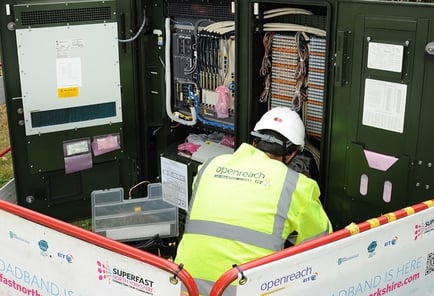 It is a small victory for businesses, homes, telecoms service providers like VTSL and just about everyone in the UK. BT is being forced to invest in their infrastructure (which it has under-invested in despite £3.03 billion in profits last year alone) or else Ofcom will force it to separate from Openreach.
It is a small victory for businesses, homes, telecoms service providers like VTSL and just about everyone in the UK. BT is being forced to invest in their infrastructure (which it has under-invested in despite £3.03 billion in profits last year alone) or else Ofcom will force it to separate from Openreach.
Recently Ofcom found that while Openreach was supposed to be an independent wholesale arm, it was too closely linked to BT and was making decisions that would benefit the group unfairly. This was, and still is, particularly true of “the last mile” of infrastructure which BT owns in most instances—infrastructure that service providers (like Vodafone or VTSL) must wholesale lease from Openreach in order to provide telephony and connectivity to customers.
The clincher has always been this: BT’s service and customer support are generally so lacking (their call centres aren’t even in the UK), that it has never benefited consumers to go to BT for business phone systems or high speed internet, even with a slight, illegal advantage of being in bed with Openreach.
So the choice for businesses was to either go with BT and potentially get your service installed a bit faster, and endure appalling support, or go with another service provider who is at the mercy of BT Openreach for installation, but will shield you from the pain of having to communicate with them, and ultimately deliver a much better service.
But soon, that should not be the case. With Openreach accounting for nearly 30% of the BT Group’s revenue, BT said it would make some changes rather than agree to spin off the wholesale arm.
The changes promised include six billion pounds in capital expenditure over the next three years for the first phase of the plan, which is "to extend superfast broadband and 4G coverage beyond 95 per cent of the country by 2020."
The BT press release also says that, "Ultrafast broadband will be deployed to a minimum of ten million homes and businesses in the same period, subject to regulatory support, with an ambition to reach twelve million.” There is also to be "an increased focus on Fibre to the Premises (FTTP) technology within the plan with the aim being to reach two million premises with the technology, mainly in new housing developments, high streets and business parks".
Many say it is too little too late, with BT trying to get away with putting G.fast. technology on its old copper lines to increase speeds to 300 megabits, rather than properly rolling out fibre. But most would agree, the net result of the latest announcement (assuming BT does what it says), is good. The telecoms market is getting fairer in the UK, Ofcom is on BT's case, and the first-rate service providers you know and trust (like VTSL) will be able to provide higher speed connectivity and faster installations of VoIP business phone systems.
Hooray!
Know someone that might need a reliable VoIP business phone system? Refer a friend!

